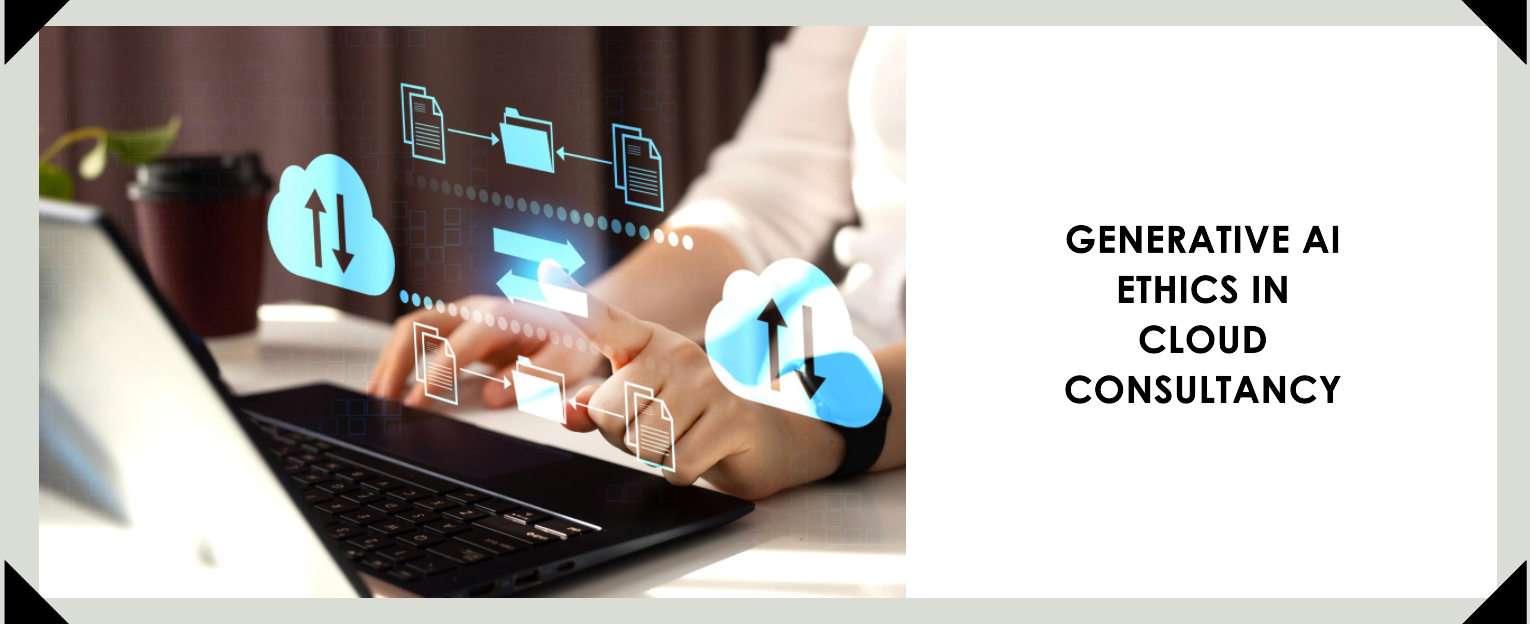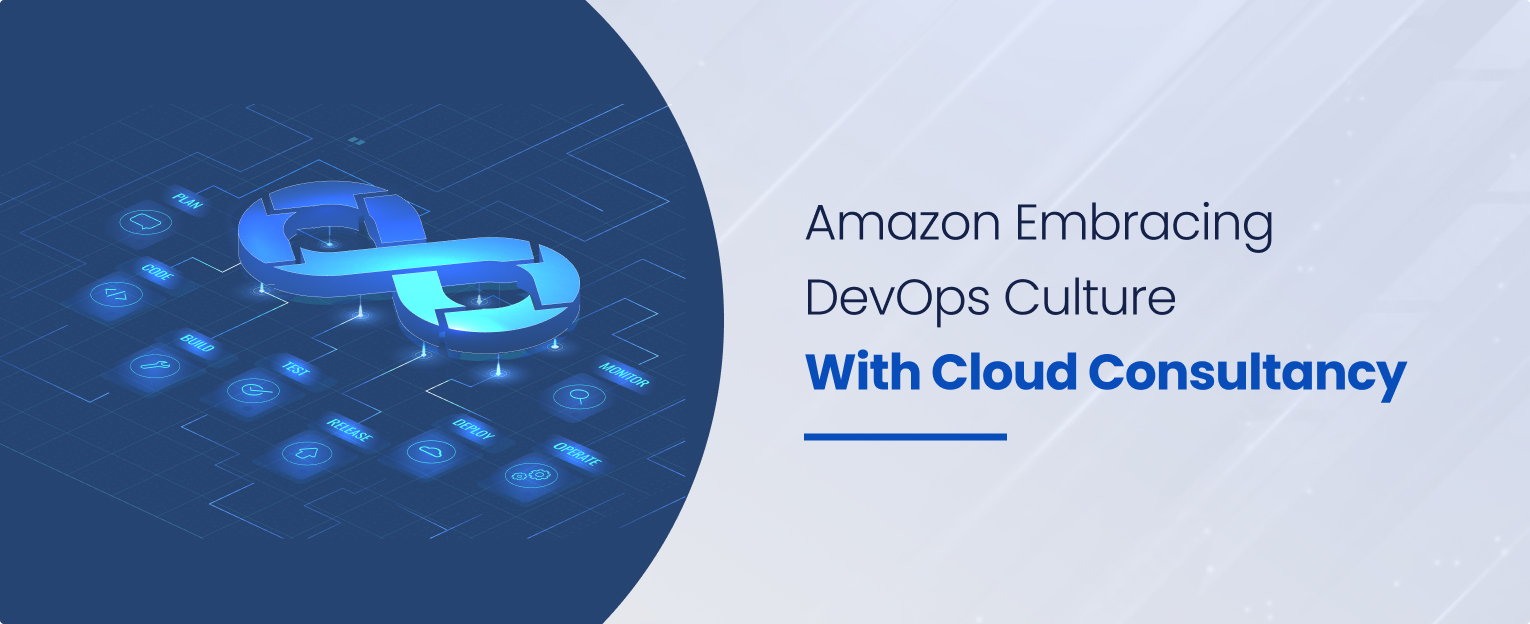Executive Summary:
Generative AI Ethics in Cloud Consultancy brought a new time for cloud consulting services. Ethics in cloud consulting is not simply an option in today’s increasingly AI-driven world; it is a requirement for ensuring a more positive technological future.
Introduction:
The fast spread of cloud-based technologies, which offer scalability, flexibility, and cost-efficiency, has completely changed how businesses operate. As important enablers of this shift, cloud consulting services have developed to assist businesses in utilizing the power of cloud computing.
However, this technological advancement has its own share of difficulties, particularly in the ethical considerations for generative AI.
Recent years have witnessed incredible progress in generative AI, sometimes known as artificial intelligence, that can produce material like writing or images.
These advancements have opened up exciting new possibilities, such as automated content generation and creative help. However, they also bring up ethical issues, particularly when used in the context of cloud consulting.

Transform Your Operations in the Cloud
Driving efficiency and innovation through tailored cloud strategies.
Generative AI Ethics in Cloud Consultancy
Generative AI ethics in cloud consultancy are complicated and require careful thought. The consequences cover matters of justice and bias, privacy issues, accountability, and the environmental impact of AI deployment.
It is imperative to address these ethical issues to promote trust, equity, and responsible innovation in the rapidly changing field of cloud consulting services.
- Bias and Fairness
Generative AI may lead to issues with fairness when employed in cloud consulting services. This occurs as a result of the fact that large data sets used by AI to learn often contain unfair biases.
These biases have the potential to unintentionally unfairly treat particular groups of people when AI is employed to make judgments.
Responsible cloud consultants must exercise extreme caution in this situation. These biases in the AI must be found and corrected. This entails carefully examining the facts and ensuring that the AI doesn’t treat people unfairly.
- Privacy Issues
Processing private data is a common step in the creation of content by AI. Cloud consulting services must focus on data security and privacy to prevent hacks and the exploitation of sensitive or personal information. In this situation, ethical standards and strong security measures are essential.
Cloud consulting services now bear a heavy burden when they employ AI to create content.
They must ensure that this private information is protected and not utilized improperly. It is important to do this since doing otherwise could result in major issues including identity theft, discrimination, or privacy violations.
- Accountability and Openness
Transparency is one of the main principles of Generative AI Ethics. Cloud consultants need to make sure that information generated by AI and content made by humans can be distinguished from one another.
Additionally, accountability procedures should be set up to identify the origin of any generated content, allowing for the assignment of blame in the event of moral or legal problems.
In cloud consulting services, it’s critical to distinguish AI-generated material from human-produced content. Clients, users, and stakeholders can better understand the origin of the information or decisions they are interacting with thanks to this division.
Case Studies
Growth. Enabled.

Sunburst Type To Learn

InGenius Prep

Magento Cloud Migration

Nutrition Detection App
Cloud Consulting Services with Responsible AI Practices
In order to ensure that AI technologies are used in a way that maintains fairness, transparency, privacy, and security, cloud consulting services have established a set of rules and moral principles for responsible AI practices.
- Ethical Training
Cloud consultants are required to complete comprehensive training on moral AI behavior. When using generative AI technology, this includes being aware of prejudice, data privacy laws, and ethical decision-making procedures.
Bias in AI is a concept that consultants learn about. They have to be aware of the ways in which bias can influence AI models and datasets, as well as the possible negative effects that bias in AI could have on both society and individuals.
When employing generative AI, consultants are taught moral decision-making techniques. This entails matching AI-generated judgments and materials with moral standards and societal norms by taking into account their broader implications.
- Regular Monitoring and Compliance
To spot biases or ethical concerns, regular audits of AI models and their outputs are crucial. It is necessary to abide by applicable data protection and privacy laws, such as the GDPR or CCPA.
Consultants analyze the results of AI models on a regular basis to check for biases, errors, or ethical concerns. These audits assist in quickly locating and fixing problems.
Regulations controlling data protection and privacy must be followed; compliance is not a choice.
Cloud consultants are required to abide by legislation like the GDPR or CCPA, which frequently includes stringent guidelines for handling data and protecting privacy. Failure to comply may have legal repercussions and harm one’s reputation.
- Stakeholder Engagement
It’s important to be inclusive. To make sure that the deployment of AI is in line with social norms and expectations, cloud consultants should interact with a variety of stakeholders, including ethicists, legal experts, and affected groups.
The engagement of stakeholders guarantees that the application of AI complies with societal norms. It reduces the chance of unintentionally crossing ethical lines and aids in reaching a consensus on ethical issues.
Stakeholder involvement encourages accountability and transparency. Collective and open decision-making in AI creates shared accountability for decision results.
Must Read: How Gen AI is changing the DevOps Landscape
Conclusion:
Generative AI ethics must take center stage in the quickly changing world of cloud consulting services. Responsible AI usage in cloud consulting is not only morally required but also strategically essential.
Businesses that place a high priority on ethical issues while integrating AI will not only gain customers’ trust but also help the cloud-based technology sector move toward a more just and sustainable future.

Transform Your Operations in the Cloud
Driving efficiency and innovation through tailored cloud strategies.
























